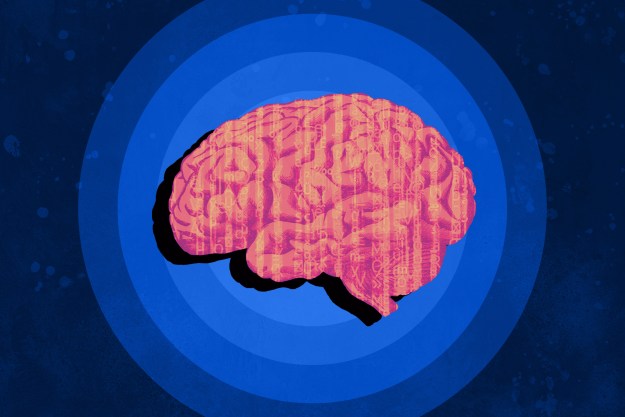That slightly offbeat premise is the basis of an intriguing project — called Neural Kubrick — from researchers at the U.K.’s Interactive Architecture Lab. The idea behind the project is to look at how artificial intelligence can impact filmmaking, an issue which speaks to a larger question about whether or not A.I. can be considered creative.
The exhibition created by researchers Anirudhan Iyengar, Ioulia Marouda, and Hesham Hattab, involves a multi-screen installation and deep neural networks which reinterpret scenes from 2001 and two other celebrated Kubrick movies: A Clockwork Orange and The Shining.
“Three machine learning algorithms take up the most significant roles in [our] A.I. film crew — that of art director, film editor, and director of photography,” Iyengar told Digital Trends. “There is a Generative Adversarial Network (GAN) that reimagines new cinematic compositions, based on the features it interprets from the input dataset of movie frames. There is a Convolutional Neural Network (CNN) that classifies visual similarities between inputted scenes and a dataset of hundreds of different movies, used to mimic the kind of decision making a film editor makes. And there is a Recurrent Neural Network (RNN), that analyzes the camera path coordinates of a cinematic sequence, and generates new camera paths to reshoot the original input sequence in virtual space — mimicking the role of a director of photography.”
The results of the Neural Kubrick experiment can be seen by checking out the website. It’s conceptual stuff, but it’s interesting because of the questions it poses about A.I. For instance, who is the author of a piece of work designed by an A.I.: The algorithm or its original programmer? Does any trace of Kubrick’s (very human) mastery of cinema remain when you’re trying to train a machine to replicate some of his decisions?
“It was intriguing for us to compare what meaning the machine makes of the given scene when all it interprets is features, patterns, zeroes, and ones,” Marouda told us.
The scenes generated by Neural Kubrick aren’t exactly entertaining in the classic sense, but they’re definitely interesting. At the very least, it’s difficult to imagine that Kubrick — a filmmaker known for pushing the technological limits of filmmaking — wouldn’t have been intrigued by the results!
Editors' Recommendations
- All of Stanley Kubrick’s movies ranked
- Google’s ChatGPT rival just launched in search. Here’s how to try it
- ChatGPT just plugged itself into the internet. What happens next?
- How will we know when an AI actually becomes sentient?
- Microsoft quits its creepy, emotion-reading A.I.


